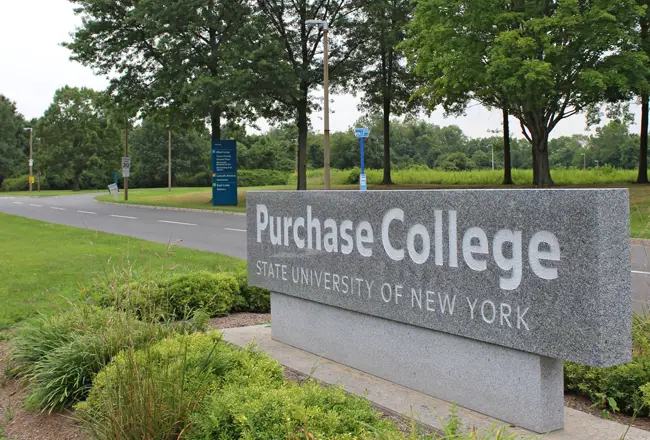Purchase College will no longer require high-schoolers to send in SAT or ACT scores with their applications, a decision that places it among a growing group of colleges moving away from standardized admissions tests.
 The SUNY school announced on Aug.1 that it would adopt a “test-optional” admissions policy, starting with its Spring 2018 admissions period. Students can still submit their SAT and ACT scores if they”™d like, but they are no longer required to as part of the application.
The SUNY school announced on Aug.1 that it would adopt a “test-optional” admissions policy, starting with its Spring 2018 admissions period. Students can still submit their SAT and ACT scores if they”™d like, but they are no longer required to as part of the application.
Dennis Craig, vice president for student affairs and enrollment management at Purchase College, said the school has spent the past two years reviewing its admissions process before coming to the decision.
“We pride ourselves on thinking wide open,” Craig said. “But in the (review) process, I think we realized that our admissions practices were more traditional and conventional, and maybe even outdated in certain ways.”
Purchase College joins a list of more than 950 colleges and universities that no longer require test scores as part of the applications process. Administrators at those schools have often argued that the scores are not a great indicator of future success in college, and that a billion-dollar test prep industry creates an unfair playing field for students from families with lower incomes.
“There have been numerous studies that indicate that for first-generation students, minority students, students from certain school districts, the test isn’t necessarily a good match,” Craig said. “Converse to that, there have been studies that indicate grade-point average and the strength and rigor of a high school curriculum are much, much stronger indicators (of future student success).”
Purchase College uses the term “holistic” to describe its admissions focus. The school considers a range of factors, including grade-point average, extracurricular activities, recommendation letters and even work experience, can show more about a student than a single test, Craig said.
“I think shifting the conversation with applicants to that, rather than all of the fear and anxiety that take up so much bandwidth in this process, the ”˜What’s your minimum test score?”™” he said. “This is a much more healthy and productive conversation to be having.”
Craig said students who put a lot of effort into the standardized tests and feel their scores help show they can succeed at the school should still submit them.
For its fall 2016 admissions period, Purchase College received about 6,800 applications. The school accepted 44 percent of those students, according to federal data.
Two years ago, Purchase College added as part of its application process a section asking high school students to submit an essay, video or some form of artwork that shows what the school’s “Think Wide Open” motto means to them.
By pairing the new test-optional policy with the new application section, the college predicts it will receive more applications, increase its selectivity and have a higher percentage of its accepted students choose to attend the school, a number that colleges refer to as yield.
Purchase College is the second four-year SUNY school to adopt a test-optional policy. SUNY Potsdam adopted the same policy in 2009. Several Hudson Valley private schools have adopted similar test optional policies, including Manhattanville College in Purchase, Marist College in Poughkeepsie and Mercy College in Dobbs Ferry.
“I think this really puts us into this interesting category of schools that really are thinking wide open and offering this type of policy that isn”™t putting everybody through the same process, but is focusing on individuality and other areas of strength,” Craig said.






















It’s a smart move from Purchase College. Testing by itself has become a business benefiting the privileged. Kids with a solid educational background will always do better in these tests. We all know how our society separate us based on our economic and social advantages; therefore, giving many an opportunity for a better education. I’m, personally, not a good test taking individual.